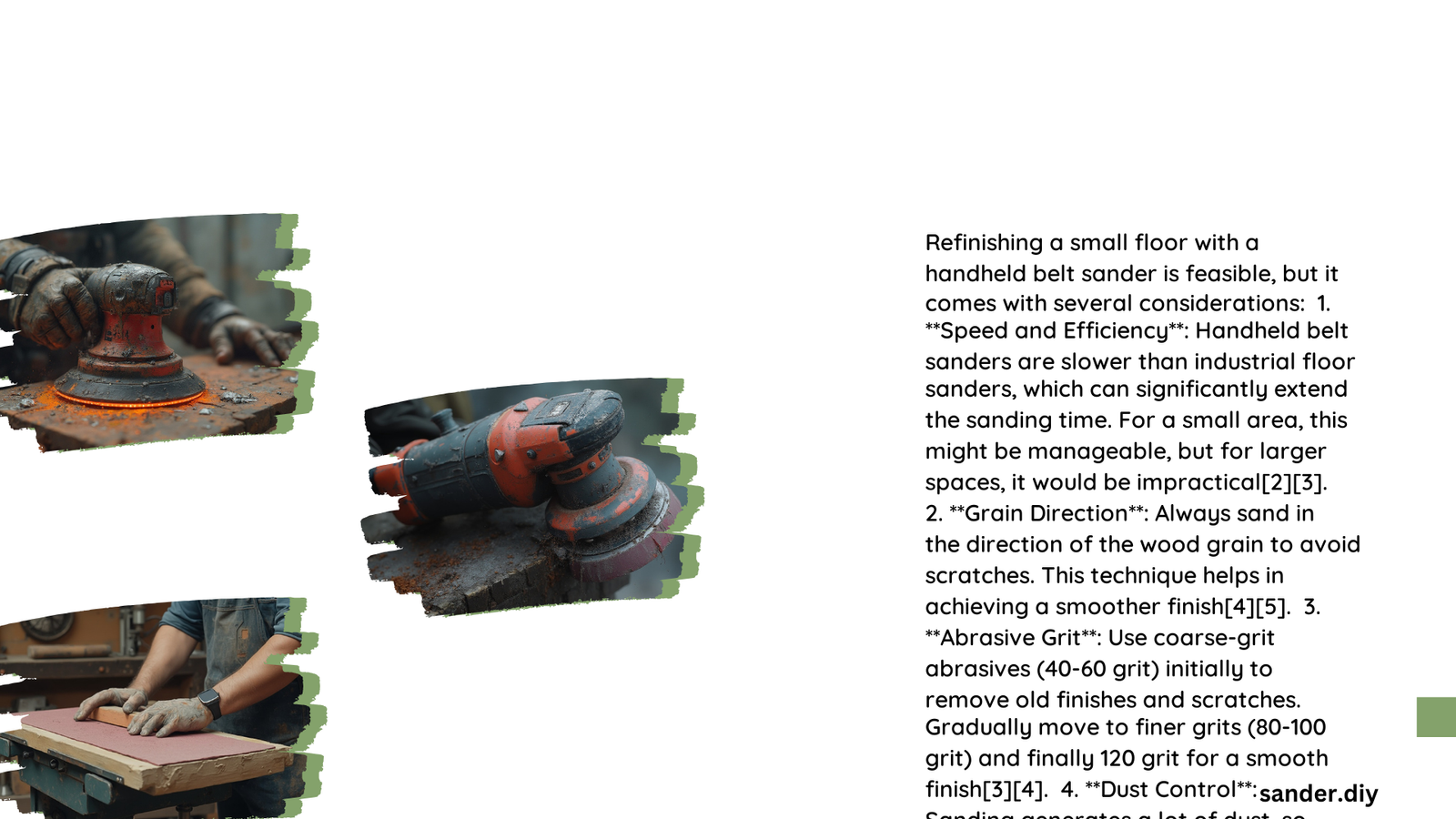Refinishing a small hardwood floor with a handheld belt sander is a challenging but achievable DIY project that requires precision, patience, and the right techniques. Homeowners can successfully restore their wooden floors by understanding the proper sanding methods, selecting appropriate grit sizes, and following professional-grade preparation and execution strategies. This comprehensive guide will walk you through the essential steps to transform your floor from worn to wonderfully renewed.
What Preparation is Needed Before Sanding?
Before diving into the sanding process, thorough preparation is crucial for a successful floor refinishing project:
Safety Equipment
- Dust mask
- Safety glasses
- Work gloves
- Knee pads
Floor Preparation Checklist
- Remove all furniture and objects from the room
- Vacuum and clean the floor thoroughly
- Inspect for loose boards or significant damage
- Repair any structural issues before sanding
How to Choose the Right Sandpaper?

Selecting appropriate sandpaper is critical for achieving a smooth, professional finish:
| Grit Level | Purpose | Recommended Use |
|---|---|---|
| 40-50 | Aggressive Removal | Initial finish stripping |
| 60-80 | Surface Smoothing | Intermediate sanding |
| 100-120 | Fine Finishing | Final smoothing |
What Techniques Ensure Even Sanding?
Sanding Motion Strategies
- Always sand with the wood grain
- Maintain consistent pressure
- Use overlapping strokes
- Move continuously to prevent gouging
- Keep the sander level
How to Handle Challenging Areas?
Edge and Corner Considerations
- Use orbital sanders for edges
- Hand scrape tight corners
- Apply extra care near baseboards
- Consider professional tools for intricate areas
What Are Common Mistakes to Avoid?
- Applying excessive pressure
- Staying in one spot too long
- Neglecting dust collection
- Skipping grit progression
- Rushing the process
How Much Time and Cost Should You Expect?
Project Investment
- Estimated Time: 4-8 hours
- Material Costs: $50-$150
- Sandpaper Expenses: $20-$50
- Finish Materials: $30-$100
Pro Tips for Perfect Results
- Test sander on inconspicuous area first
- Work systematically across the floor
- Clean between grit changes
- Use dust extraction system
- Allow proper drying time between coats
Final Recommendations
While a handheld belt sander can refinish a small floor, consider your skill level and floor condition. For extensive damage or large areas, professional equipment or expert assistance might be more appropriate.
Tools You’ll Need
- Handheld belt sander
- Dust mask
- Safety glasses
- Multiple grit sandpapers
- Vacuum cleaner
- Wood filler
- Polyurethane finish
Potential Challenges
- Uneven sanding
- Dust management
- Physical strain
- Potential wood damage
Pro Tip: Practice on scrap wood to develop technique before starting your actual floor project.
References:
1. Benchmark Abrasives Sanding Guide
2. Professional Floor Refinishing Techniques
3. Wood Floor Restoration Manual
